Activism: Feminism
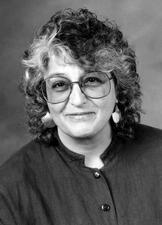
Rachel Adler
Rachel Adler is unquestionably among the leading constructive Jewish theologians, translators, and liturgists of the modern era. One of the first theologians and ethicists to integrate feminist perspectives and concerns into the interpretation of Jewish texts and the renewal of Jewish law and ethics, Adler is the award-winning author of Engendering Judaism.
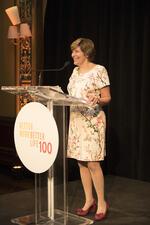
Advancing Women Professionals in the Jewish Community
Advancing Women Professionals and the Jewish Community (AWP) was founded by Shifra Bronznick in 2001 as an intervention “to advance Jewish women into leadership, stimulate new models of shared leadership, and promote policies for healthy, effective workplaces.” Over fifteen years, AWP conducted groundbreaking research and adapted strategies from other sectors that engaged women and men in decisive, systems-based change.
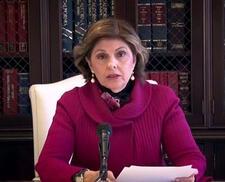
Gloria Allred
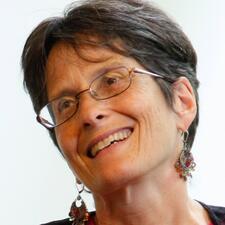
Sharon Cohen Anisfeld
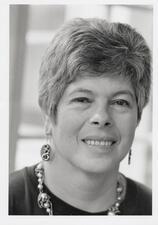
Joyce Antler
Jenny Apolant
An ardent suffragist, Jenny Apolant served as a board member of the General Association of German Women from 1910 to 1925. In Frankfurt, she was one of the first women municipal councilors from 1919 to 1924, founded the Political Workers Association in 1922, and strove to improve the condition of women through profound social change.
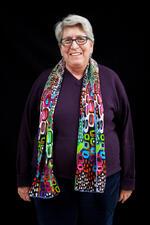
Bettina Aptheker
Bettina Aptheker is an American feminist, writer, educator, and political activist. She advocated for racial justice, studied and taught African American women’s history, and founded the Feminist Studies department at the University of California at Santa Cruz.

Rita Arditti
Rita Arditti was an Argentinian Sephardic scientist, feminist, educator, and activist who spent most of her adult life working for social justice and human rights while living in the United States. She co-founded Science for the People, New Words Bookstore, and the Women’s Community Cancer Project. She co-edited anthologies on science and politics and reproductive technologies and wrote a book about the Grandmothers of Plaza de Mayo in Argentina.
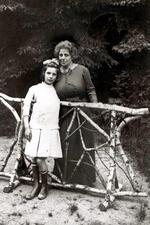
Art in the United States
Artists: Contemporary Anglo
In Britain, both feminism and feminist art took considerably longer to emerge and make their mark than in the United States, but when they did, many Jewish women artists created profound artistic work. British Jewish women artists generally hold both Jewishness and gender as central to their artistic output. Their art reveals the diverse ways in which women perceive their Jewishness in contemporary Britain.
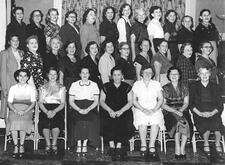
Assimilation in the United States: Twentieth Century
Jewish women assimilating into a changing American society across the twentieth century navigated often conflicting gender roles. As they strove to achieve upward social mobility, they adapted Jewish assumptions of what women, especially married women, should do to accommodate American norms for middle class women. Their collective accomplishments registered in political activism, organizational creativity, strong support for feminism, religious innovation, and educational achievement in the face of antisemitism, stereotypes, and denigration.
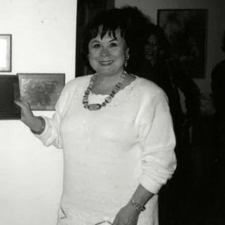
Auberge Shalom Pour Femmes
Auberge Shalom pour femmes was established in Montreal, in 1989, after a Jewish woman was murdered by her husband. It was the first and only Jewish shelter for women in Canada. The organization opened an additional point of service in 2002, providing counselling and support through an external office.
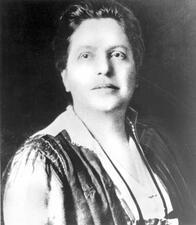
Autobiography in the United States
As the status and roles of women in American and Jewish life changed over the twentieth century, more and more American Jewish women turned to autobiographical writing as a means of documenting these changes and addressing questions of American, Jewish, and female identity. Jewish women created accounts of the immigrant experience, feminist or activist involvement, political and literary involvement, Holocaust survival narratives, as well as coming-of-age memoirs.
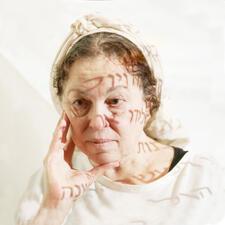
Helène Aylon
Helene Aylon was an American, New York-based, multimedia visual artist who began by creating process art in the 1970s, focused on anti-nuclear and eco-activist art by the 1980s, and subsequently devoted more than 35 years to the multi-partite installation The G-d Project. This last body of work’s often direct or indirect textuality resonates from and responds to Judaism’s traditionally male-dominated textuality as part of a larger commentary on women in Judaism.

B'nai B'rith Women
Created at the beginning of the twentieth century, B’nai B’rith Women expanded its role during both World Wars. Although gender roles after World War II reverted to a more conventional structure, in the 1960s BBW shifted its efforts to reflect the antipoverty and feminist campaigns of the period.
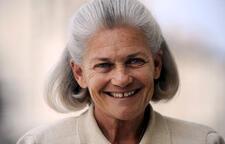
Elisabeth Badinter
Elisabeth Badinter is one of France’s most prominent and controversial philosophers. Among her most important contributions figure her numerous writings about feminism and gender relations, which emphasize the importance of “equality through resemblance,” as well as her historical works on the Enlightenment.
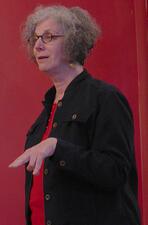
Diane Balser
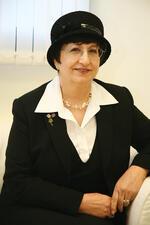
Adina Bar-Shalom
Adina Bar-Shalom defines herself as a Haredi woman, not a feminist but a go-getter. She is involved in and has initiated Israeli cultural, public and political activities in conjunction with secular organizations and activists and has participated in many social fora.
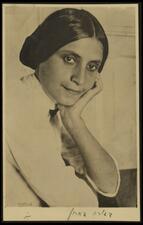
Devorah Baron
Devorah Baron is one of the few Hebrew women prose writers in the first half of the twentieth century to gain critical acclaim in her lifetime. She wrote primarily about Jewish women’s lives, focusing on the challenges women faced in a society that did not value them equally. Her work was in dialogue with European writers, including Chekhov and Flaubert, and with Hebrew modernist writer S. Y. Agnon.
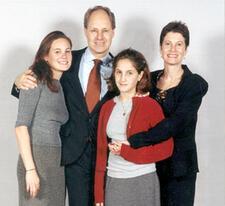
Patricia Barr
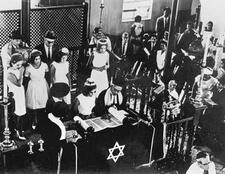
Bat Mitzvah: American Jewish Women
When Judith Kaplan Eisenstein became the first American girl to mark her bat mitzvah on March 18, 1922—two years after women were guaranteed the right to vote in the US—she recalled “shock[ing] a lot of people,” especially her disapproving grandmothers. Today, American girls across the Jewish spectrum, from secular to ultra-Orthodox, mark their coming-of-age in various forms.
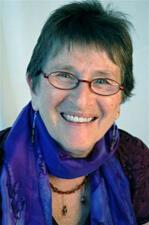
Evelyn Torton Beck
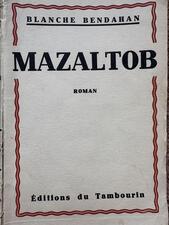
Blanche Bendahan
Blanche Bendahan, born in Algeria in 1893, to a Sephardi father and a Catholic mother, became a renowned writer, poet, and political activist. One of her most famous works, Mazaltob, addressed themes of tradition versus modernity, women's rights, and the intersections between Jewish, Muslim, and Christian communities. She continued to write about her homeland until her death in 1975, combining her multicultural background with modernist style.
Margarete Berent
Margarete Berent was the first female lawyer to practice in Prussia and the second female lawyer ever licensed in Germany. In 1925 she opened her own law firm in Berlin and, after fleeing Nazi Germany, opened her own firm in the United States. Not only was she the first female lawyer and the head of her own law firm, but she was also an ardent feminist and active in promoting opportunities for women.
Jessie Bernard
Sociologist Jessie Bernard’s feminist epiphany came at age 67 in 1969, but her earlier work anticipated feminist theory by discussing the differences between men’s and women’s experiences and arguing that quantitative studies did not accurately represent women’s stories.


